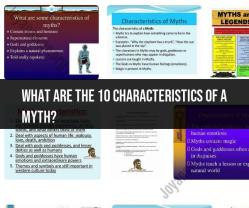What does Parris believe about being persecuted?
In Arthur Miller's play "The Crucible," Reverend Samuel Parris is depicted as a complex character with strong beliefs about persecution. Parris's beliefs and motivations are shaped by the historical and social context of the Salem witch trials. Here are some insights into Reverend Parris's beliefs about persecution as portrayed in literature:
Fear of Persecution: Parris is deeply afraid of being persecuted himself. He is concerned about his reputation and position as the minister of Salem Village. He fears that if the witchcraft accusations become public, it will reflect poorly on him and the church, leading to his own persecution.
Desire for Self-Preservation: Parris's primary motivation throughout the play is self-preservation. He believes that by supporting the witch trials and condemning those accused of witchcraft, he can deflect attention away from himself and protect his own interests.
Religious Authority: Parris sees the witch trials as an opportunity to strengthen the authority of the church and consolidate his own power. He believes that by identifying and eradicating the perceived evil of witchcraft, he can assert the moral and religious supremacy of the church.
Moral Judgment: Parris is a highly judgmental character who views the presence of witchcraft as a sign of moral decay within the community. He believes that it is his duty to root out sin and evil, even if it means persecuting those he suspects of being witches.
Conflict with Others: Parris's beliefs about persecution also lead to conflicts with other characters in the play, such as John Proctor and Giles Corey, who are critical of the witch trials. Parris perceives their opposition as a threat to his authority and responds with anger and suspicion.
Manipulation of Fear: Parris understands the power of fear and uses it to his advantage. He knows that the witch trials create a climate of fear in which people are willing to accuse others to save themselves. Parris exploits this fear to maintain control.
In literature, Reverend Parris is often portrayed as a character driven by a combination of fear, self-interest, and a desire for religious and personal authority. His beliefs about persecution are rooted in these motivations, and they lead him to make morally questionable decisions throughout the play, contributing to the tragic events of the Salem witch trials. Parris's character serves as a cautionary example of the dangers of unchecked power and the consequences of persecution driven by personal and political interests.












